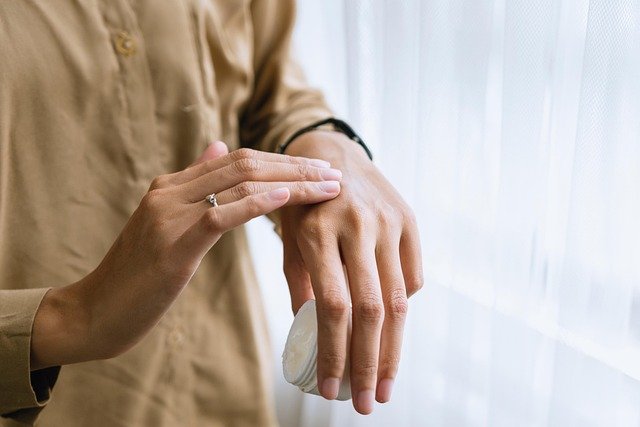Simple Remedies That Help Soothe Itchy Skin Naturally
Struggling with constant skin itching? Discover helpful tips and gentle remedies that can calm irritation, reduce discomfort, and support healthier skin without harsh ingredients. These everyday solutions may offer the relief you’ve been looking for.

What causes itchy skin and when should you be concerned?
Itchy skin, also known as pruritus, can have various causes ranging from minor irritations to more serious underlying conditions. Common triggers include dry skin, allergic reactions, insect bites, and certain skin conditions like eczema or psoriasis. Environmental factors such as low humidity, hot showers, and harsh soaps can also contribute to skin irritation. While occasional itching is normal, persistent or severe itching accompanied by rashes, swelling, or other symptoms may warrant medical attention. If your itching lasts for more than two weeks or significantly impacts your quality of life, it’s advisable to consult a dermatologist.
How can oatmeal baths help soothe itchy skin naturally?
Oatmeal baths have long been recognized for their skin-soothing properties. Colloidal oatmeal, which is finely ground oatmeal, can help relieve itching and inflammation when added to bathwater. The compounds in oatmeal, including avenanthramides and beta-glucans, have anti-inflammatory and moisturizing effects that can calm irritated skin. To prepare an oatmeal bath, simply add a cup of colloidal oatmeal to lukewarm bathwater and soak for 15-20 minutes. This gentle remedy can be particularly effective for conditions like eczema, sunburn, or generalized itching.
What role do moisturizers play in reducing skin discomfort?
Proper moisturization is crucial for maintaining healthy skin and reducing itchiness. When skin becomes dry, it’s more prone to irritation and itching. Applying a moisturizer immediately after bathing, while the skin is still damp, can help lock in hydration and create a protective barrier. Look for moisturizers containing ingredients like ceramides, hyaluronic acid, or glycerin, which are known for their hydrating properties. For sensitive or itchy skin, fragrance-free and hypoallergenic options are often best. Regular moisturizing, especially after exposure to water or harsh environments, can significantly reduce discomfort and prevent further skin irritation.
Can dietary changes help alleviate constant itching?
What you eat can have a surprising impact on your skin’s health and its tendency to itch. Certain foods may trigger or exacerbate skin irritation in some individuals. On the other hand, incorporating anti-inflammatory foods into your diet may help reduce itching from the inside out. Foods rich in omega-3 fatty acids, such as fatty fish, flaxseeds, and walnuts, can help combat inflammation. Antioxidant-rich fruits and vegetables, like berries, leafy greens, and sweet potatoes, may also support skin health. Additionally, staying well-hydrated by drinking plenty of water throughout the day can help maintain skin moisture and potentially reduce itching.
What natural remedies are effective for soothing itchy skin?
Several natural remedies can offer relief from itchy skin. Cold compresses can help numb the skin and reduce the urge to scratch. Aloe vera gel, known for its cooling and anti-inflammatory properties, can be applied directly to irritated areas. Essential oils like peppermint or chamomile, when properly diluted, may also provide soothing effects. Baking soda paste, made by mixing baking soda with a small amount of water, can be applied to itchy spots for quick relief. Apple cider vinegar, diluted and applied to the skin, may help balance pH levels and reduce itching. However, it’s important to patch test any new remedy and discontinue use if irritation occurs.
In the United States, many people find relief from itchy skin through natural remedies readily available in their local health food stores or even their own kitchens. The popularity of these solutions has grown as more individuals seek gentler alternatives to over-the-counter medications. However, it’s crucial to remember that while these remedies can be effective for mild to moderate itching, persistent or severe symptoms should always be evaluated by a healthcare professional.
Which over-the-counter products can help find relief for constant itching?
While natural remedies can be effective, some over-the-counter (OTC) products are specifically formulated to target itchy skin. Antihistamine creams or lotions can help reduce itching caused by allergic reactions or insect bites. Hydrocortisone creams, available in low concentrations without a prescription, can provide temporary relief for mild itching and inflammation. Calamine lotion is another popular option, particularly for itching caused by poison ivy or other plant-based irritants. For more generalized itching, oral antihistamines may offer relief, especially for itching related to allergies.
| Product Type | Brand Example | Key Features | Estimated Price Range |
|---|---|---|---|
| Colloidal Oatmeal Bath | Aveeno Soothing Bath Treatment | 100% Natural Colloidal Oatmeal | $6 - $10 |
| Moisturizer for Itchy Skin | CeraVe Itch Relief Moisturizing Cream | Contains Pramoxine HCl | $15 - $20 |
| Antihistamine Cream | Benadryl Extra Strength Itch Relief Cream | Fast-acting, contains diphenhydramine | $5 - $8 |
| Hydrocortisone Cream | Cortizone-10 Maximum Strength | 1% Hydrocortisone | $6 - $10 |
| Calamine Lotion | Caladryl Clear Lotion | Contains calamine and pramoxine HCl | $7 - $12 |
Prices, rates, or cost estimates mentioned in this article are based on the latest available information but may change over time. Independent research is advised before making financial decisions.
In conclusion, itchy skin can be a bothersome condition, but there are numerous natural and over-the-counter remedies available to help soothe discomfort and find relief. From simple home remedies like oatmeal baths and cold compresses to specialized products designed to target itching, individuals have a range of options to explore. However, it’s essential to pay attention to persistent or severe symptoms and seek medical advice when necessary. By combining gentle skincare practices, appropriate remedies, and a healthy lifestyle, most people can effectively manage and reduce the discomfort of itchy skin.
This article is for informational purposes only and should not be considered medical advice. Please consult a qualified healthcare professional for personalized guidance and treatment.




